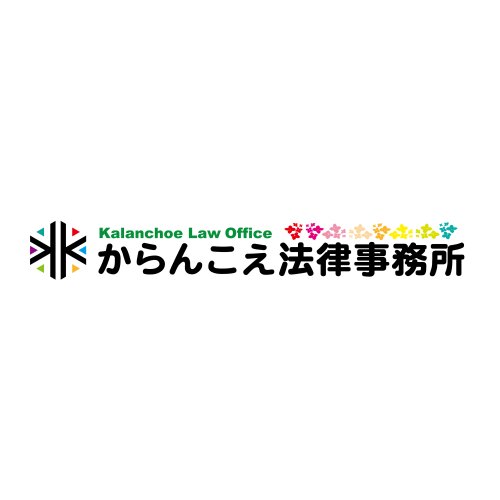Best Appeal Lawyers in Sendai
Share your needs with us, get contacted by law firms.
Free. Takes 2 min.
List of the best lawyers in Sendai, Japan
About Appeal Law in Sendai, Japan
Appeals in Sendai, Japan, are a critical part of the judicial system that allow individuals to challenge court decisions if they believe an error occurred during their trial. Both criminal and civil cases may be appealed to a higher court, such as the Sendai High Court. Typically, appeals must be filed within a strict time limit after a judgment is rendered. The appellate process generally focuses on whether the law was correctly applied and whether the trial was fair, rather than reinvestigating the facts of the case.
Why You May Need a Lawyer
Navigating the appeal process can be complex and challenging, especially for those unfamiliar with Japanese legal procedures. Common reasons for seeking a lawyer include:
- You feel the court's decision in your case is unjust or legally incorrect.
- There is new evidence that was not considered during your trial.
- Your legal rights may have been violated during the trial process.
- Complex procedural rules make it difficult to file an appeal properly.
- The other party in your case has filed an appeal against a favorable decision.
- You do not understand the potential consequences of appealing or not appealing.
- The language barrier or lack of familiarity with Japanese law makes self-representation difficult.
A qualified appeal lawyer can advise you on the merits of your case, file necessary documents within required deadlines, and represent your interests in higher courts.
Local Laws Overview
In Sendai, the appeal process is governed by Japanese national laws, with local courts applying and enforcing these regulations. Key points include:
- The right to appeal is generally available after a decision by a district court or family court, moving up to the Sendai High Court or the Supreme Court of Japan for final reviews.
- Appeals must be filed within a limited period after the original judgment, with deadlines usually ranging from 14 to 30 days depending on the type of case.
- There are different types of appeals, such as koso (appeal to a higher court) and jokoku (final appeal).
- The appeals court reviews the case based on the legal arguments and evidence presented previously unless new evidence has emerged and is permitted for consideration.
- Written submissions and strict formatting are important in Japanese courts, making legal expertise invaluable.
- Costs and court fees may apply, and the loser may be ordered to pay a portion of the other party's legal costs.
Local practice and custom may also influence how appeals are treated in the Sendai court system, so consulting with a local attorney is strongly recommended.
Frequently Asked Questions
What is an appeal in the context of Japanese law?
An appeal is a formal request for a higher court to review and potentially change the decision made by a lower court. It is not a retrial but an examination of whether the law and procedures were correctly applied.
How long do I have to file an appeal in Sendai?
You typically must file a notice of appeal within 14 days for criminal cases and 14 to 30 days for civil cases after the court judgment, but different cases may have different deadlines. It is important to confirm the exact period for your specific case.
Which courts handle appeals in Sendai?
The Sendai District Court serves as a trial court, and the Sendai High Court handles appeals from district and family courts in the region. Further appeals may be brought to the Supreme Court of Japan in Tokyo.
Can I new present evidence during my appeal?
Usually, the appellate court reviews only the record and evidence from the original trial. However, in certain situations, newly discovered evidence may be considered if it could not have reasonably been presented earlier.
Do I need to attend the appellate court in person?
Most appeals in Japan are decided based on written briefs and documentation. Personal attendance may be requested for oral arguments or questioning, but this is less common than in lower courts.
What are the costs associated with filing an appeal?
There are court fees and possibly additional expenses, such as costs for submitting documents, translations, or expert opinions. If you lose the appeal, you may be ordered to pay part of the opposing party’s costs.
Can foreigners appeal a court decision in Sendai?
Yes, foreigners have the same appeal rights as Japanese citizens. However, language and legal differences make it particularly important for non-Japanese speakers to seek professional legal assistance.
What happens if my appeal is rejected?
If your appeal is rejected, the original court judgment stands. Further appeals to a higher court may be possible in some cases, especially if significant legal error can be demonstrated.
How long does the appeal process take?
The length of the appeal process can vary widely depending on complexity, court workload, and whether further appeals are made. It may take from several months to over a year for a final decision.
Should I hire a specialized appeal lawyer?
Because appeal cases require in-depth knowledge of legal procedures and effective written arguments, hiring a specialized appeal lawyer is highly recommended for the best chances of success.
Additional Resources
If you need more information or support regarding appeals in Sendai, consider contacting or consulting:
- Sendai Bar Association (Sendai Bengoshi Kai) - Provides lawyer referrals and legal consultations in the region.
- Sendai District Court and Sendai High Court - For procedural information and court forms.
- Japan Legal Support Center (Houterasu) - Offers free or low-cost legal consultations and explanations about the appeal process.
- Ministry of Justice Japan - Provides public legal information and resources.
- Local legal aid clinics or NGOs - May assist with initial consultations, especially for those with limited means or language barriers.
Next Steps
If you are considering an appeal in Sendai, Japan, follow these steps:
- Immediately review the judgment date and confirm your appeal deadline.
- Gather all relevant documents from your trial, including evidence and court transcripts.
- Schedule a consultation with a qualified appeal lawyer, especially one familiar with cases in Sendai.
- Discuss the strengths and weaknesses of your case with the lawyer before deciding how to proceed.
- If you choose to move forward, work with your lawyer to prepare, file, and serve your notice of appeal within the required time frame.
- Prepare written arguments and supporting documents as advised by your lawyer.
- Stay informed of all correspondence from the courts and follow instructions carefully throughout the appeal process.
Taking timely and informed action is essential in ensuring your rights are protected during the appeals process in Sendai.
Lawzana helps you find the best lawyers and law firms in Sendai through a curated and pre-screened list of qualified legal professionals. Our platform offers rankings and detailed profiles of attorneys and law firms, allowing you to compare based on practice areas, including Appeal, experience, and client feedback.
Each profile includes a description of the firm's areas of practice, client reviews, team members and partners, year of establishment, spoken languages, office locations, contact information, social media presence, and any published articles or resources. Most firms on our platform speak English and are experienced in both local and international legal matters.
Get a quote from top-rated law firms in Sendai, Japan — quickly, securely, and without unnecessary hassle.
Disclaimer:
The information provided on this page is for general informational purposes only and does not constitute legal advice. While we strive to ensure the accuracy and relevance of the content, legal information may change over time, and interpretations of the law can vary. You should always consult with a qualified legal professional for advice specific to your situation.
We disclaim all liability for actions taken or not taken based on the content of this page. If you believe any information is incorrect or outdated, please contact us, and we will review and update it where appropriate.










